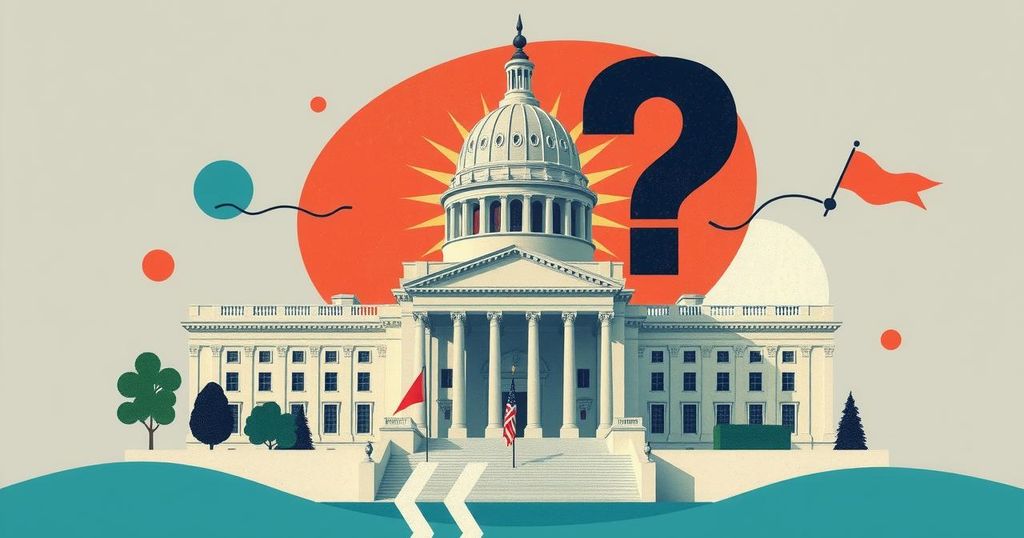Germany’s Green Party faced a disappointing election result, capturing only 11.61% of the vote, down from 14.8% in 2021. As they prepare to move to opposition, leaders Robert Habeck and Annalena Baerbock reflect on the campaign’s challenges, including possibly alienating voters with coalition intentions and immigration discussions. The party’s future role in government remains uncertain, but collaboration on financial reforms may offer an avenue for influence.
The recent Bundestag elections have left Germany’s Green Party feeling disheartened. Leaders Robert Habeck and Annalena Baerbock displayed their dismay as the party received only 11.61% of the vote, a decline from 14.8% in 2021. With the conservative parties CDU and CSU likely forming a new coalition with the SPD, the Greens will have little influence going forward.
As the current government remains in place until a new Chancellor is elected, the Greens face a precarious future. Habeck, reflecting on the election, noted the campaign went well and claimed there was unity within the party, stating, “This is not a good result: we wanted more.” He has chosen not to pursue any prominent roles within the party for now. Meanwhile, Baerbock remains silent regarding her political plans.
Habeck’s willingness to consider a coalition with CDU/CSU may have alienated potential voters. Felix Banaszak, co-leader of the Green Party, speculated that many voters were deterred by the prospect of Friedrich Merz becoming Chancellor. Additionally, Habeck’s comments on immigration might have harmed the party’s appeal, as they lost approximately 700,000 votes to the Left Party, which promoted more liberal policies on immigration.
In the wake of their electoral losses, party leaders acknowledge that part of the Green Party’s decline reflects the challenges faced within their coalition government with the SPD and FDP. Britta Hasselmann, co-leader of the parliamentary group, insisted that despite the setbacks, notable accomplishments were achieved, particularly regarding renewable energy and citizenship legislation.
Transitioning to opposition will present a challenge for the Greens in the current political landscape characterized by Donald Trump’s influence in the US. Banaszak emphasized the need for Germany to adopt a more confident position within Europe. The Greens may not be positioned to join the CDU/CSU and SPD coalition; however, they could play a role in discussions around reforming Germany’s debt laws. Should Merz aim to amend the strict debt rules to bolster defense spending, he will require support from the Greens, who have expressed readiness to cooperate temporarily in this regard.
The Green Party in Germany is experiencing significant challenges following disappointing election results, which have reduced their influence in government. Despite having a well-structured campaign, internal party dynamics and strategic miscalculations may have led to their decline. As they prepare for a shift to opposition, the party must navigate a complex political landscape, with potential opportunities still existing for collaboration in financial reforms. The situation highlights the need for introspection and recalibration to regain voter trust and political leverage moving forward.
Original Source: www.dw.com




